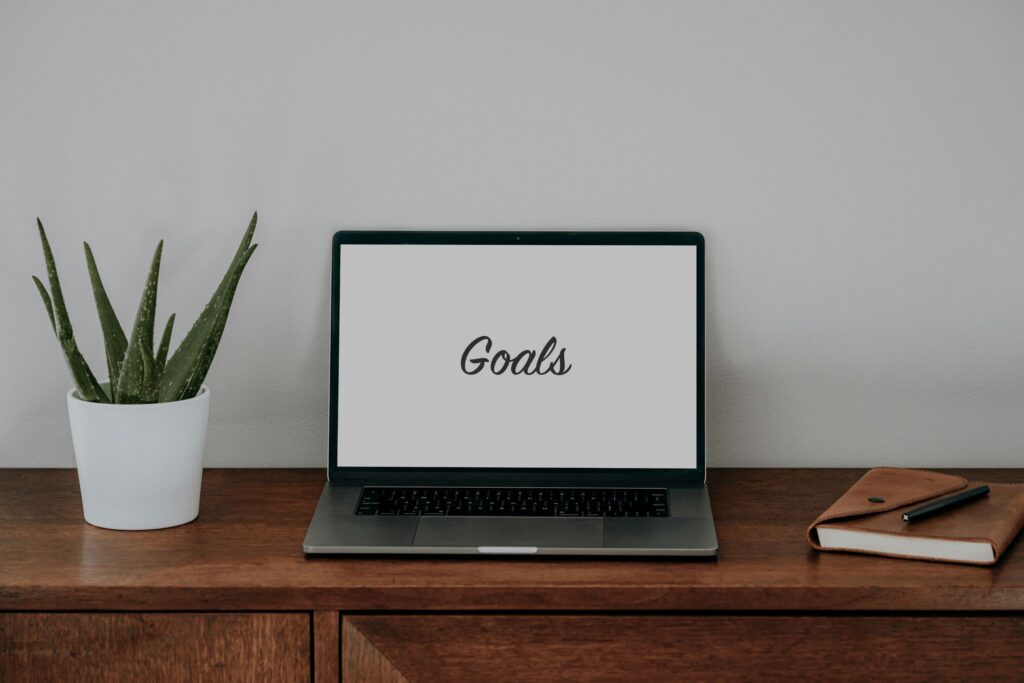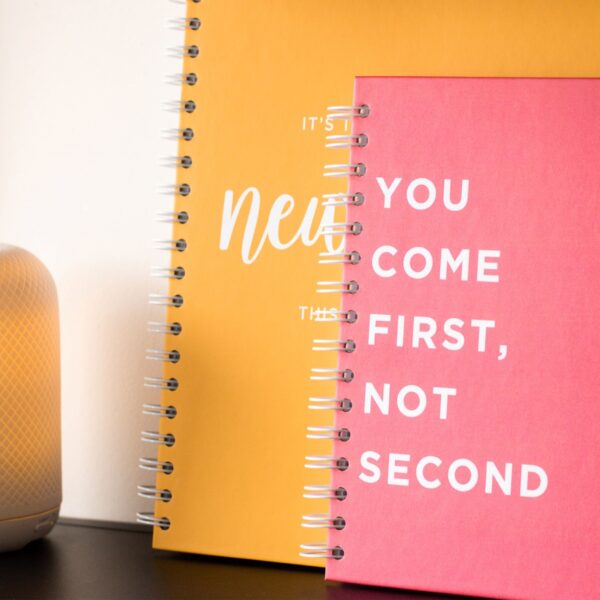It’s already October, and we’ve entered the last quarter of 2024. Time seems to fly, doesn’t it?
So many of us have still not recovered from the fact that we survived a pandemic, and now, here we are, four years later, preparing to step into 2025.
Another New Year and another round of resolutions. Think about it, how many of us make New Year’s resolutions?
We tell ourselves that this will be the year we get serious about our hobbies, learn a new skill, focus on our passions, or, most commonly, get in shape and live healthier lives.
We even go all out. We buy new running shoes, gym gear, and maybe even a fancy water bottle to kick things off.
But what happens? Come February and that initial spark of motivation fades. The running shoes gather dust, the gym visits become less frequent, and before we know it, those grand plans have taken a backseat.
Sound familiar? Chances are, you’ve experienced something like this too.
The question is, why does this happen? Do you think we lack the skills, talent, or knowledge to achieve our goals?
Not really. Many of us are guilty of waiting for the “perfect” time or the “perfect” set of circumstances to start working on our dreams. But they never come. The perfect time and the perfect condition is when you get started.

Do you ever wonder how successful people seem to achieve so much year after year? It’s not because they have the highest IQs, endless talent, or a magical secret.
The main quality that separates them from others is their ability to be disciplined and work towards their goals every single day. Successful people don’t wait for motivation, they rely on self-discipline to keep them moving forward.
And that’s the key to achieving any goal whether it’s getting fit, starting a business, or mastering a new skill.
Motivation is temporary. Sure, we all feel motivated from time to time, maybe after watching an inspiring video or hearing someone’s success story, but that feeling doesn’t last.
Discipline, however, sticks around. It is what keeps you working toward your goals, even when you don’t feel like it and even when it’s hard.
But discipline isn’t something you’re born with. It’s a skill that anyone can develop with the right mindset and tools.
If it were easy, everyone would be living their dream life. The reality is that building discipline takes time, effort, and commitment. It’s tough, but it’s not impossible.
In this blog, we’ll dive into practical, powerful strategies to help you become more disciplined and finally achieve the goals you’ve been dreaming of.
So, if you’re ready to stop waiting for the perfect time and start making real progress, keep reading!
Table of Contents
What Is Self-Discipline?
Self-discipline is the ability or rather a mindset that allows you to control your actions, emotions, and impulses so that you are focused on your long-term goals.
It’s what helps you push through challenges and resist distractions, even when the easier choice might be to quit or take a break.
Essentially, self-discipline is about doing what needs to be done, even when you don’t feel like doing it.
At its core, self-discipline is the practice of taking consistent action toward your goals, regardless of external circumstances or how motivated you feel on a given day.
It’s easy to stay on track when you’re excited and energized, but self-discipline is particularly helpful in times when enthusiasm fades, when there are so many distractions, or when the road to success feels longer than expected.
It’s the difference between giving in to temptation and staying committed to the bigger picture.
The important thing to remember is that self-discipline isn’t a trait you’re born with, it’s a skill that can be developed over time.
It might feel difficult at first, but with small and consistent steps, you can build your self-discipline and gradually make it a habit.
While motivation can give you a quick boost of energy, it’s self-discipline that keeps you moving forward day in and day out.
It’s what separates those who talk about their goals from those who achieve them.
If you can learn to control your impulses and maintain focus, you can make steady progress toward any goal, no matter how big or small.
In short, self-discipline is the foundation of success.
Why Is Self-Discipline Important?
Self-discipline is what makes you successful whether it’s on the battlefield, in business, your career, or in personal growth.
Think about soldiers in an army. One of the first and most crucial lessons taught to defense personnel worldwide is discipline.
It’s not just about following orders, but about having that mental toughness and control to stay focused, act with purpose and intention, and push through challenges.
The same goes for achieving your goals as well. Without self-discipline, even the best plans can fall apart.
Self-discipline is what keeps you on track when you’re surrounded by distractions and temptations. It helps you make the right choices that align with your long-term goals.
It is what helps you become a better version of yourself, achieve your dream life, reshape your mindset, and improve your health and well-being.
When you’re disciplined, you don’t let momentary desires or challenges steer you off course.
Please understand that having self-discipline is one of the hardest things to learn and master. But it gets better with time. The more you practice it, the better you become.
Self-discipline is the bridge between where you stand right now and where you want to be in the future.
8 Benefits of Self-Discipline
Self-discipline is a skill that has so many benefits in all areas of your life. Here are some of the main benefits of practicing self-discipline that can positively impact your life:
1. Reduced Anxiety
Self-discipline helps you feel more in control of your life. When you know you’re taking steady and focused action toward your goals, it reduces the uncertainty and worries that often come with inaction.
This sense of control makes you feel calmer, less anxious, and more capable of handling challenges as they come.
2. Better Achievement of Goals
Self-discipline helps you remove distractions and stay focused, which boosts your ability to reach both short-term and long-term goals.
It allows you to prioritize important tasks and consistently work on them without giving in to procrastination or self-sabotage. This leads to real progress over time.
3. Improved Mental Health
People who practice self-discipline often report feeling more confident and independent. It helps you reduce the feelings of anxiety and make you feel at peace with your daily routines.
Some related blogs:
- 7 Habits That Are Endangering Your Mental Health
- 6 Daily Habits to Boost Your Mental Health and Well-Being
- Finding Mental Wellness in a Stressful World
4. Improved Physical Health
When you’re disciplined, you make better and healthier lifestyle choices like doing regular exercise even if you have a hectic schedule, eating healthy and nutritious food, and getting enough sleep.
This will not only improve your physical but also your overall health.
Also, you’re less likely to develop any unhealthy habits which will have better long-term health outcomes.
5. Greater Resilience
The more you practice self-discipline, the more resilient you become. It trains you to resist instant gratification and bounce back from setbacks.
This ability to stay the course even when things get tough helps you build mental toughness and perseverance, both of which are very important to be successful in any area of life.
6. Increased Productivity
Self-discipline teaches you how to use your time and energy more efficiently. You can get more done in less time by planning, organizing, and prioritizing tasks.
This will give you time to relax, work on your personal growth, and do other activities you like, all while still moving towards your goals.
7. Better Decision-Making
Self-discipline makes you more thoughtful about your choices. Instead of acting on impulse, you start thinking about the long-term impact and make decisions that align with your values and goals.
This leads to better choices and helps you avoid quick and impulsive decisions that you might regret later.
8. Increased Happiness
When you stay disciplined and make steady progress toward your goals, it makes you happy and gives you that feeling of satisfaction.
Achieving what you set out to do gives you a sense of accomplishment which makes you feel more confident and motivated to take on even bigger challenges.
These benefits show that self-discipline is a key skill for anyone who wants to live a successful, healthy, and fulfilling life. The more you practice it, the more you’ll notice its positive effects on all areas of your well-being.
8 Powerful Ways to Become More Disciplined and Achieve Your Goals
Now that we’ve explored the importance and benefits of self-discipline, the next step is to learn how to cultivate it in your own life.
As I said before, self-discipline isn’t something you’re born with, rather it’s a skill that can be developed with consistent effort and the right strategies.
Let’s dive into seven powerful ways to become more disciplined and stay on track to achieve your goals.
1. Practice Mindfulness
The first step to becoming more disciplined is practicing mindfulness. Think about how we go through our days, mostly on autopilot.
From the moment we wake up, we move from task to task without giving much thought to what we’re doing. We brush our teeth, grab a coffee, check our phones, and move through routines almost mechanically.
Although it is very convenient but it often means that we’re not fully present in our actions. This can lead to unproductive habits and distractions.
Self-discipline, however, is all about intention. It’s not about going through the motions, but about being aware and deliberate with each action.
When you practice mindfulness, you train yourself to pay closer attention to what you’re doing and why you’re doing it.
This awareness makes you recognize when you’re slipping into old and unproductive habits and gives you the opportunity to course-correct in real time.
Mindfulness helps you break the cycle of impulsive decisions or distractions by grounding you in the present moment.
For example, if you find yourself procrastinating, mindfulness can help you notice the urge to check your phone or scroll through social media, and will give you the chance to choose a more productive action instead.
It’s about tuning in to your thoughts and behaviors so you can make conscious decisions that align with your goals.
Incorporating mindfulness into your daily routine doesn’t have to be complicated.
It can be as simple as taking a few minutes each morning to set your intentions for the day, focusing on one task at a time, or even just pausing to breathe before reacting to a situation.
The more mindful you are, the more control you’ll have over your actions. This will lead to stronger self-discipline and ultimately, the ability to achieve your goals.
Some blogs on mindfulness and mindful living:
- What Is Mindfulness And Why Mindfulness Is A Superpower
- What Is Mindful Living And How To Live Mindfully
- What Is Mindfulness Meditation And How To Do It
- How To Practice Mindfulness In Your Daily Life
- 7 Healthy Habits to Live a Mindful Life
- 5 Indispensable Mindful Living Tools
- 7 Ways to Reduce Stress Through Mindful Living
2. Set Short and Long-Term Goals
The next step in the process to cultivate self-discipline is to set short- and long-term goals.
Without clear goals, we can easily find ourselves moving through life without direction, simply drifting along and reacting to whatever comes our way.
Goals give us purpose and a sense of control over where we’re headed.
Whether you’re starting a new chapter in life or just trying to improve in one area, it’s important to define what you want to achieve in both the short and long term.
Long-term goals represent the big picture, where you want to be in the future. It could be related to your career, improving yourself, your health, or your relationships.
Short-term goals, on the other hand, serve as stepping stones to help you reach those larger ambitions.
Think of it this way, if I asked you to build a wall, the task would seem daunting and overwhelming. But if I asked you to lay just ten bricks today, perfectly and intentionally, it would feel much more manageable.
With each small step, you get closer to completing the wall. Focusing on small, consistent actions will prevent you from feeling overwhelmed and give you a sense of accomplishment.
When you have a specific target in mind, it becomes easier to resist distractions and stay on track.
Each goal will remind you of what you’re working towards, and with every small win, your self-discipline will strengthen and propel you toward achieving your larger goals.
3. Plan Everything
The next step in building self-discipline is to plan everything out. Once you’ve set your short- and long-term goals, the path ahead can feel daunting unless you have a clear, detailed plan.
I can’t emphasize enough the importance of proper planning if you really want to achieve your goals.
Without a plan, you’ll feel like you’re wandering aimlessly, but with a well-crafted blueprint, each step becomes clearer and more manageable.
With planning, you can break down your goals into actionable steps and focus on what needs to be done each day, week, or month.
Just as you set daily, weekly, monthly, and yearly goals, it’s equally important to create plans for achieving them.
For example, if your goal for the week is to complete a project, your daily plan could be to dedicate specific hours to tackle different aspects of that project.
Daily planning begins the night before. Reflect on what you want to accomplish tomorrow, whether mentally or by writing it down.
One of the best ways to do this is through journaling.
Journaling provides you with a dedicated space to document your goals, organize your thoughts, and create your to-do lists.
You can make your to-do list for each day, prioritize what’s important, and how you’re going to fit it into your schedule.
Both of us have recently started journaling and we can personally attest to the benefits of this practice.
We’ve been using our own Mindful Living Digital Planner, which we designed specifically with mindful living principles in mind. It’s more than just a journal, it’s a planner and health tracker all in one.
You can use it to set yearly, monthly, and weekly goals, organize your day, and even monitor your health.
If you’re looking to buy one for yourself, we invite you to check out our digital planner.

Related blogs on journaling to help you understand this practice in detail:
- What Is Journaling and What Are Its Benefits?
- What Are The Different Types of Journaling
- 5 Simple Steps to Start Journaling for Mental Health
- How and Why You Should Start a Gratitude Journal
- How to Journal for Personal Growth and Self-improvement
- What Is a Manifestation Journal and How to Journal for Manifestation
- How to Start a Health and Wellness Journal
- How Can Journaling Boost Your Productivity
- How to Journal for Overthinking
- What Is a Morning Journal and How to Journal in the Morning?
- Journaling vs. Keeping a Diary: What’s the Difference?
- The Pros and Cons of Journaling
4. Let Go of Old Habits and Develop New Ones
The next thing you need to do to become more disciplined to achieve your goals is to let go of your old habits and develop some new ones.
Habits play a very important role in our lives, and some of those habits have a negative effect on our well-being and productivity.
Think about it, how many times have you set out to do something meaningful but ended up scrolling through social media instead? Or how often have you planned to get in shape but skipped the workout to Netflix and chill?
These habits and actions might seem small and insignificant at the moment but these everyday decisions accumulate over time and can steer us away from our goals.
Whether it’s mindless scrolling before bed or choosing instant gratification instead of working toward long-term success, these actions hold us back.
The key to breaking free from these negative cycles is to consciously replace your bad habits with healthier and more productive ones.
Start by identifying the habits that aren’t serving you, and think about the ways they can be replaced. Instead of staying glued to your phone before bed, try reading or meditating.
Swap that Netflix binge for a workout or a walk outside. These new habits will gradually become part of your routine.
To make it easier, build rituals around your new habits. Find ways to make them enjoyable and sustainable. You can create a relaxing bedtime routine or reward yourself after a productive day.
These small and positive changes may seem insignificant at first, but over time they have the power to transform your life.
5. Change Your Mindset and Build Strong Willpower
One of the most crucial aspects of self-discipline is the ability to change your mindset and build strong willpower.
If there is one thing that separates successful people from the rest, it is their willpower to do the right thing, even when it’s difficult.
Discipline, at its core, is about having the willpower to make the right choices consistently.
Think of willpower as a mental muscle that grows stronger with practice. Just like you would train your body at the gym to build strength, you need to train your mind to resist temptations and push through discomfort.
Strengthening your willpower doesn’t happen overnight, it takes time, patience, and intentional effort. Every time you push yourself to act, even when your mind is trying to talk you out of it, you’re exercising this mental muscle.
If you want to get up early in the morning, set an alarm and keep it at a distance so when it goes off, you’ll have no choice but to physically get out of bed to turn it off.
At that moment, resist the urge to go back to sleep. Instead, wash your face and start your day. That small action of getting up without overthinking is a simple way to strengthen your willpower.
As we discussed above, you have to decide your goals and break them down to build your to-do list for the day and week. Stick to that to-do list and make sure you follow it completely.
6. Resist Temptations and Distractions
In today’s hyper-connected world, resisting temptations and distractions has become a challenge that can make or break your journey toward self-discipline and achieving your goals.
With social media, online shopping, and endless entertainment at our fingertips, it’s easier than ever to get sidetracked from what really matters.
One of the first steps to building discipline is identifying the specific temptations and distractions that consume your time and energy.
These can range from mindlessly scrolling through social media to binge-watching Netflix when you should be working on your goals.
Once you’ve pinpointed these distractions, the next step is to remove them from your environment completely.
Turn off all the app notifications except for normal calling so you can be reached if it’s urgent or if there’s any emergency.
Every time your phone dings with a new notification, it pulls your attention away from what you’re focusing on, and it takes time to get back on track.
Eliminating these distractions will help you stay focused on the task at hand and make you less prone to procrastination.
Remove fast food and junk snacks from your home. Create a space that encourages your progress rather than tempts you to fall back into old habits.
Similarly, delay your leisure activities, whether it’s watching Netflix or browsing the web—until you’ve finished your daily to-do list.
Rewarding yourself with these activities after completing your work will help build your discipline over time.
7. Failure Is Your Best Friend
One of the most powerful lessons on the path to discipline and achieving your goals is understanding that failure is not your enemy, it’s your best friend.
When you set out to accomplish anything meaningful, you must understand that you’re not going to get it right on your first try.
Success is a process and every failure is simply a step that brings you closer to it.
Failure teaches you what doesn’t work. It refines your approach and teaches you valuable lessons along the way. It is a necessary part of the journey.
The key is to not give up when things don’t go as planned. Instead, see these setbacks as opportunities to learn and adjust your strategies.
This mindset shift is crucial because, without it, you’ll be tempted to quit at the first sign of difficulty.
When you understand that failure is just a part of the process, you develop that mental strength needed to keep moving forward even when things get tough.
And it’s in those moments when you’ve failed, but choose to keep going, that discipline is truly built.
Discipline is not about achieving your goals in a perfect and linear fashion. It’s about showing up every day and putting in the effort, and learning from every misstep along the way.
Each time you fall short, you get a little closer to your goal, as long as you remain consistent and committed. Over time, this persistence will pay off, and what once seemed impossible will start to become a reality.
Remember, failure is not the end. It’s just the beginning of learning what it takes to succeed. Embrace it, learn from it, and use it as fuel.
8. Take That First Step
The last and perhaps most crucial way to build discipline and achieve your goals is to simply take that first step. It’s often said that starting is the hardest part, and it couldn’t be truer.
Whether you’re starting a fitness journey, starting a new project, or trying to learn something new, the initial step can feel daunting.
But once you take it, you’ll find that the momentum starts to build, making it easier to keep going.
There are always a million reasons to delay like the fear of failure, uncertainty, or the desire to wait for the “perfect” moment. But waiting for everything to be just right is often a form of procrastination.
The perfect time never comes and the longer you wait, the harder it becomes to take action. The first step is what breaks that cycle. It’s what gets the ball rolling.
The key here is to push past the resistance and do it anyway, even when you don’t feel ready. Don’t overthink or overanalyze.
Just take the smallest possible action toward your goal. It doesn’t have to be perfect, it just has to be done. Once you start, you’ll realize that the fear of beginning was far worse than actually starting.
What makes this step so powerful is that it starts a chain reaction. Once you’ve started, even if it’s just a tiny move forward, it becomes easier to take the next step, and then the next.
You start to build discipline naturally by showing yourself that you can overcome that initial hesitation.
Remember, discipline isn’t about doing everything at once. It’s about consistently moving forward, step by step. So, no matter how small or insignificant that first step seems, take it.
That’s where the journey toward achieving your goals really begins.
Wrapping Up – How to Be Disciplined in Achieving Goals?
Think about your life so far and every challenge you’ve faced and conquered. Did any of those accomplishments happen by chance?
Whether it was passing an exam, nailing a job interview, or achieving a fitness goal, each success was a result of having a clear vision and staying disciplined, no matter what was happening around you.
You’ve already proven that you have what it takes to be disciplined and achieve your goals.
So why not apply that same discipline to every area of your life? If you can achieve the things you have so far in your life, you have it in you to be disciplined and achieve all the goals you’ve set for yourself.
We all have this one life which is a precious gift and each one of us deserves to live it fully. We should chase our dreams and become a better version of ourselves each day.
Take that first step, however small it may be, and commit to the journey. Don’t let guilt, anger, or frustration hold you back.
These feelings can pull you down, but they don’t define you. Instead, learn from any missteps, forgive yourself, and grow from the experience.
Today is the day to start making those changes. Follow the steps we’ve discussed in this blog to build discipline and stay consistent.
You’ll be amazed at how much you can achieve when you stick to the path, and as you move forward, you’ll unlock the potential you’ve always had within you. Keep going, you’ve got this! Namaste!
FAQs – How Can I Make Myself More Disciplined?
What Are 7 Ways to Gain Self-Discipline?
To gain self-discipline, start by setting clear short- and long-term goals, then create a solid plan to achieve them.
Focus on building good habits and replacing bad ones, and practice mindfulness to stay aware of your actions.
Remember, discipline is built over time through small, consistent efforts. We’ve discussed several strategies in the blog to help you get started.
What Are the 5 Points of Self-Discipline?
The five key points of self-discipline are setting clear goals, creating a plan, sticking to good habits, resisting temptations, and learning from failure.
These points form a solid foundation for achieving anything you set your mind to.
How to Be Disciplined and Consistent?
Consistency comes from following through on the plans you set for yourself. You need to break your goals down into manageable steps, develop a routine, and stick to it.
Discipline requires you to show up daily, even when you don’t feel like it. Follow the steps we’ve shared in the blog to stay on track.
How to Be Disciplined and Consistent in Studies?
To be disciplined in studies, create a study plan, set achievable daily goals, and eliminate distractions. Practice mindfulness to stay focused, and build habits around studying, like a dedicated time or space.
Consistency and planning are key to success in any goal, including academic ones.
Self-Discipline Exercises
Self-discipline exercises include setting daily goals, practicing mindfulness, creating a to-do list, and resisting distractions.
You can also train your willpower by forcing yourself to take action without overthinking. These small steps will build your discipline muscle over time.
Self-Discipline Examples
Examples of self-discipline include sticking to a workout routine, avoiding procrastination by following your to-do list, and staying focused on long-term goals instead of giving in to short-term distractions.
As we explored in the blog, self-discipline comes from practicing mindful actions and breaking bad habits.
Self-Discipline Quotes and Affirmations
Here’s a quote to inspire discipline: “Discipline is choosing between what you want now and what you want most.”
Repeat affirmations like, “I am committed to my goals,” and “I have the willpower to stay focused.” These simple reminders can help you stay consistent.
Related Blogs on affirmations:
- What Are Affirmations and How Do They Work?
- How To Write Positive Affirmations for Personal Growth and Self-Improvement
- How To Write Powerful Affirmations for Manifesting Your Dream Life
- How to Write Mindfulness Affirmations to Live in the Present Moment
- How to Write Gratitude Affirmations for a Happy and Thankful Life







Leave a Reply